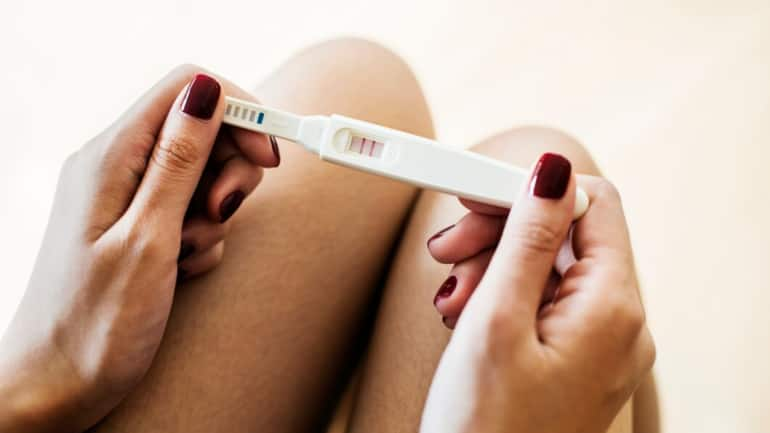



While India has become the country with the most population in the world, surpassing China, there is no denying that the infertility rates have increased over time. The overall infertility rate has increased from 22.4 percent in 1992-93 to 25.3 percent in 2005-06 and then risen to 30.7 percent in 2015-16, as per the National Family Health Survey (NFHS).
There is also a hidden issue affecting the general public—the problem of secondary infertility—with studies showing its prevalence reaching around 28.6 percent in 2015-16, an increase of 5.9 percent from 1992-93, according to NFHS.
But what is secondary infertility?
Dr R Uthra, consultant obstetrics and gynaecology at DHEE Hospitals, Bengaluru, explains secondary infertility is the inability to conceive or carry a pregnancy to full term after previously giving birth to one or more children or having previous history of abortion.
Unlike primary infertility, where individuals have never conceived, secondary infertility occurs in people who have successfully conceived before but are unable to do so again.
This condition can be emotionally challenging, as couples who previously had no trouble conceiving may struggle to understand why they are facing difficulties now. Citing a study published in 2022 by the journal Human Reproduction, Dr Uthra adds, "Secondary infertility accounts for nearly 50 percent of all infertility cases worldwide, yet it remains underdiscussed compared to primary infertility."
Also Read | World IVF Day: Common health issues that interfere with your ability to conceive
Potential causes of secondary infertility
Secondary infertility arises from a complex interplay of factors—some mirroring those seen in primary infertility, while others are likely to develop after a previous pregnancy.
"In women, the following can hinder natural conception for the second time: age greater than 35 years, polycystic ovary syndrome (PCOS), previous surgeries such as C-section or fibroid removals, endometriosis, and chronic conditions like thyroid disorders or diabetes. These conditions may result in scarring hormonal imbalance or reproductive organ damage, which makes it harder to conceive again," Dr Navina Singh, IVF Specialist at Birla Fertility & IVF, Mumbai, cautions, adding, "Drastic changes in lifestyle such as significant weight gain or loss, increased stress levels, smoking or alcohol consumption can also disrupt fertility."
As far as men are concerned, sperm quantity and quality is of great importance. "Any decrease in sperm motility, count, or overall quality can have dire consequences on fertility as well as age, significant lifestyle changes like weight gain, excessive stress, smoking or increased consumption of alcohol and health conditions like diabetes can limit their ability to have a second child," Dr Singh adds.
Why is secondary infertility lesser known?
 Unlike primary infertility, secondary infertility is underdiscussed and lacks awareness. (Image: Freepik)
Unlike primary infertility, secondary infertility is underdiscussed and lacks awareness. (Image: Freepik)
Secondary infertility is often dismissed or misunderstood. The most common misconception is that 'you already have a child, so you must be fertile'. This assumption can lead to delay in seeking help.
There is also a lack of awareness. "Many people are unfamiliar with secondary infertility and assume their struggles are unique. Emotional or societal pressure may make couples feel guilty or hesitant to express their difficulties, fearing judgment for wanting another child when they already have one," Dr Rajendra Shitole, IVF Consultant at DPU Super Speciality Hospital, Pimpri, Pune, says.
Adding to this, there might be a delay in medical intervention. "Since there is a history of successful conception, many couples and even healthcare providers may not prioritise fertility evaluations until years of unsuccessful attempts," Dr Shitole shares.
Also Read | Naturally boost your fertility: Include these 10 foods in daily diet to improve reproductive health
Can secondary infertility be prevented?
While secondary infertility isn't always preventable, several measures can reduce the risk and improve management. Early intervention and lifestyle modifications can help manage secondary infertility.
Dr Neelam Suri, senior consultant obstetrician and gynaecologist, Indraprastha Hospital, New Delhi, suggest the following tips:
Disclaimer: This article, including health and fitness advice, only provides generic information. Don’t treat it as a substitute for qualified medical opinion. Always consult a specialist for specific health diagnosis.
Discover the latest Business News, Sensex, and Nifty updates. Obtain Personal Finance insights, tax queries, and expert opinions on Moneycontrol or download the Moneycontrol App to stay updated!